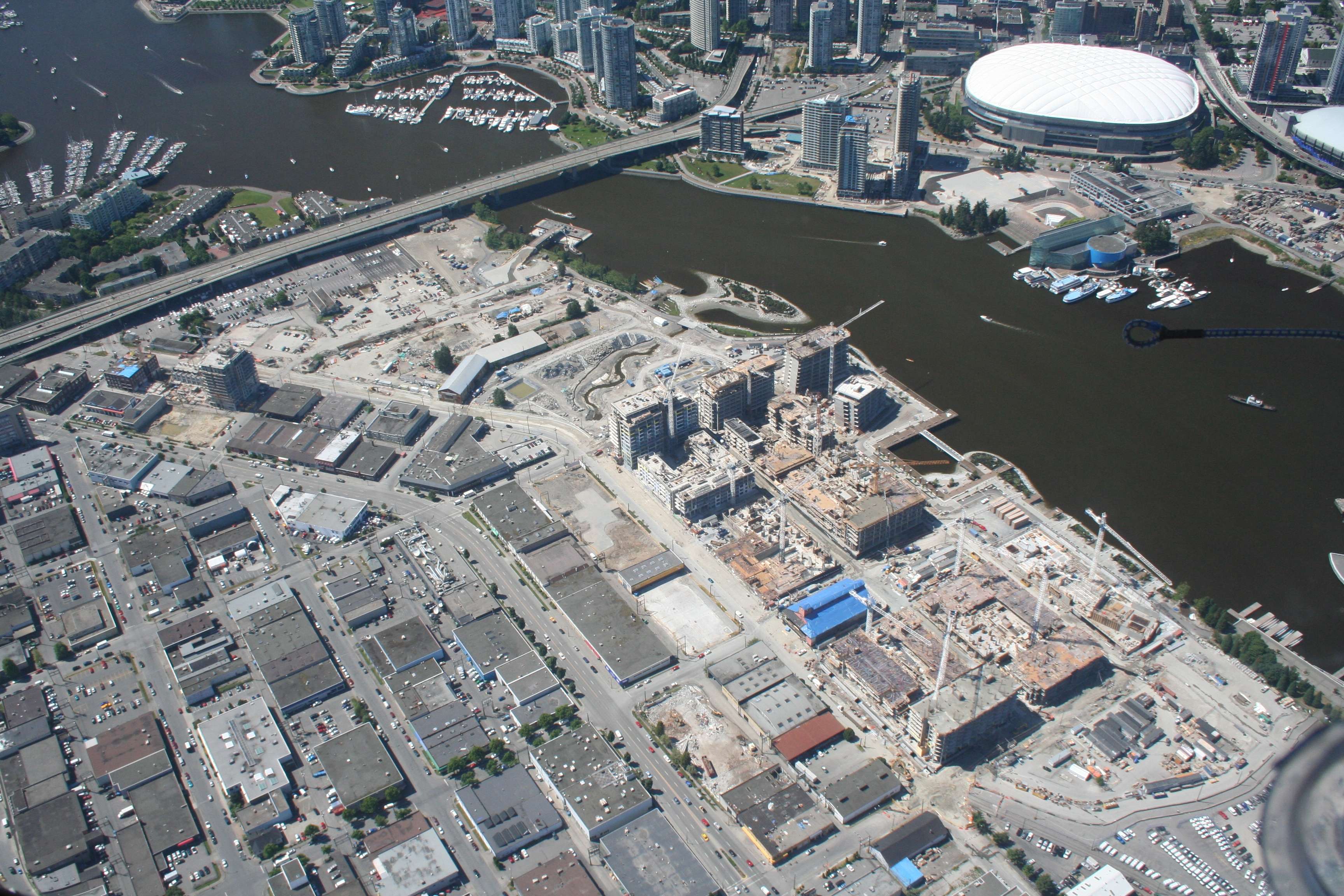


Haiku Urbanization...
Over a good single malt in Sydney (say that ten times really fast), Mark Davidson told me that Richard Wright, Professor of Geography at Dartmouth, often requires his students to write their course evaluations as Haikus. What creative genius! When I returned to Vancouver and offered The City as an Entertainment Machine in the Spring of 2009, I decided to see what we could do. One of the things we did in the first few weeks of the course was to consider the classical tradition of urban studies -- a school often known as the "urban systems" framework -- and how it is being revolutionized by theories today that emphasize fluidity and mobility. So we read two very different kinds of articles. In class, I asked everyone to write a haiku summarizing the tensions and possibilities between these two articles. Fascinating stuff, eh?
- Brian J.L. Berry (1964). "Cities as Systems within Systems of Cities." Papers of the Regional Science Association 13, 147-163.
- Mimi Sheller and John Urry (2006). "The New Mobilities Paradigm." Environment and Planning A 38, 207-226.
Haiku Interpretations
Nomads were mobile
yet territorial still;
diaspora lasts.
(Sara Ahadi)
Everything moving
Just-in-time delivery
all can eat sushi.
Cities as systems,
but what is Berry really
trying to tell us?!
(Kaitlyn Braybrooke)
Mobility is
a good job and wads of cash
parked in your driveway.
Mobility is,
not just an active process,
but of all actions.
(Jeff Hung)
My face not my space
like online networks on crack
will to connection.
So what will we do
when petrol becomes too dear
for a fresh mango?
(Mike Kushnir)
Fast-moving capital
where is the community in
fluid places and spaces?
(Lauren English)
Moving moving stop
Switch planes change trains wait for green
stop to go again.
(Nicole Dublanko)
Stochastic process
leaves no room for race, class, sex;
real lives are left out.
Airport traveling
could walk everywhere before;
now only some can.
(Jesse Brown)
The creative class
favoured cosmopolitans
through space and through time.
(Fred Sham)
Border-crossing woes
would suck to be in Gaza;
I should visit them
(Jesse Brown)
The City as an Entertainment Machine
This course is an interdisciplinary engagement with the city. We approach the urban in three ways. First, we will consider recent efforts to update one of the classical models of urban growth, development, and politics. Thirty years ago, the sociologists John Logan and Harvey Molotch began a research program based on the idea of "the city as a growth machine," which emphasized that even the most sharply polarized city politics would find common ground in the shared need of all locally-dependent elites: growth. The growth machine metaphor inspired an enormous and interdisciplinary literature on the various ways that cities compete for industrial growth and relocation, and the varied effectiveness of different cities. Recently, however, an emergent interdisciplinary literature has introduced a new metaphor that gives much more attention to the complexities of postindustrial services, tourism, travel, and consumption: "the city as an entertainment machine."
Second, we'll consider the interplay of old and new ways of thinking about the relations between cities and dynamic, shifting networks of tourist visits and spectacular events. We'll forge a synthesis of Brian Berry's landmark conceptualization of "cities as systems within systems of cities" in the early 1960s, and a more recent, pathbreaking proposal for a new, interdisciplinary "mobility paradigm" by Sheller and Urry. We'll also synthesize the current transformation of a previous transformation from urban managerialism to what Harvey called urban entrepreneurialism -- a shift that has now culminated in entrepreneurial regimes devoted to perpetual locational competitions, sometimes involving what Cochrane and Peck diagnose as a replacement of old "growth coalitions" with newer "grants coalitions."
Third, we'll use these complementary theoretical frameworks to analyze several distinct aspects of urban tourism, entertainment, and the rise of what might be called the mega-event era of urbanization. This new era is shaped by alternating currents of global tourist flows, attempts to secure heritage site designations, an itinerant industry of convention and event planning, and of course the ever-more intense competition for the rights to host spectacular hallmark events. Mega-event urbanization is bound up with the rhetorical and empirical realities of globalization, and the sometimes frantic attempts of cities to remake the links between their local situations and a seemingly abstract, elusive space of flows portrayed by urban theorists like Manuel Castells. Even places that succeed in broadcasting positive, optimistic images about themselves feel compelled to invest heavily in place promotion when opportunities arise to bid for the right to 'host' a hallmark event.
For empirical richness and local interest, part of our discussion may consider Vancouver's experience of the city as an entertainment machine -- starkly illustrated by the successful bid for the 2010 Winter Olympic Games, the planning and staging of the enterprise, and the consequences for urban planning, governance, and community relations. Vancouver's "Invite the World In" mantra during the bidding process in late 2002 and early 2003 clearly illustrated the contemporary requirements to craft images of transnational, cosmopolitan energy -- all to attract free-spending tourists, footloose professional migrants, and deep-pocket investors. The months leading up to the July 2, 2003 announcement demonstrated just how competitive the Games site selection process has become, and how important this sort of locational tournament is for urban politics and long-range infrastructure planning. The subsequent institutional transformations at the city, provincial, and federal levels provided valuable insights into how this particular Olympic hosting event compared to those of other cities, and how the transnational spectacle staging industry continues to evolve.

CopyLeft 2011 Elvin K. Wyly
Except where otherwise noted, this site is
licensed under a Creative Commons Attribution 2.5 License
GM Place, Vancouver, July 2003
(Elvin Wyly)
Millennium Water (Olympic Village) under construction, Vancouver, June 2008 (Elvin Wyly)
"So that we might get a better feel for these ideas before sitting down to write about them, we took a trip to Venice. ... How appropriate, we thought, to start writing this introduction in one of the world's most traveled-to places, a place so clearly 'infused with travel.' We found, however, that walking around Venice ... made us realize anew the impossibility of thinking about travel without thinking about home. It is not just that travelers must pursue their craft always in the home of someone else, but also that one's own sense of home is so often informed by travel. And this is the problem of modernity that we're after: being at home, being in place, these become a kind of traveling consciousness, a reflexive act informed by travel. The paradoxes of travel are also the paradoxes of place, of home." Claudio Minca and Tim Oakes (2006), "Introduction: Traveling Paradoxes." In Minca and Oakes, eds., Travels in Paradox: Remapping Tourism. Lanham, MD: Rowman & Littlefield, 1-21, quotes from pp. 1-2.

Best counterfactual-negative travel summary:
"... we will inevitably leave here with the sense that we have left undone things that we ought to have done (even if we have not as yet done anything we ought not to have done)."
Graeme Wynn (2009). "A Long and Boring Note from OZ." Electronic mail message, November 27. Vancouver, BC: Department of Geography, University of British Columbia.
"If China is different -- and China is -- it is because fiscal worries ... hardly register on Beijing's blotter. Overbuilding is not a prime concern. Indeed, some might call it an economic strategy."
Urban Studies Journals
Scholars who love cities publish in many different kinds of books and journals. Here's a small sample of some of the best places to find the latest advances in our thinking about cities and urban life. Please note that you may need to be working on a computer at UBC, or working through a proxy server or Virtual Private Network, for these links to give you full access to the articles.
Urban Studies 400:
Seminar in Urban Studies
Before the First Class...
Before your first day in any seminar, and especially any seminar with me, I recommend you take a look at this:
Thanks to Jayme Walenta and F. Bonnie Kaserman for recommending this piece, which is also used in a course at the University of Kentucky. We certainly won't use Kahn's recommendations as absolute, rigid straightjackets, but many of the suggestions and insights are very much worth consideration.
"...it may not be going too far to say that the Vancouver Olympics are envisaged as a showcase for a decade of neoliberalism, just as the 'free enterprise' Olympics in Los Angeles were celebrated by some U.S. conservatives as confirming the values of the Reagan years." David Whitson (2004). "Bringing the World to Canada: 'The Periphery of the Centre.'" Third World Quarterly 25(7), 1215-1232, quote from p. 1228.

Venice, December 2009 (Elvin Wyly)
"By the fourteenth century a passport system was established in Padua; and in Ferrara the Duke inspected personally the daily list of travellers which innkeepers were ordered to present. This Byzantine regulation, which actually originated in Constantinople, soon became universal." Lewis Mumford (1961), The City in History. New York: Harcourt, Brace, & World, p. 354.
From a Former Student...
Lindsay Young took this seminar in the spring of 2007. After working and traveling for a few years, she prepared a personal statement for applications to several Master's-level Tourism Management programs. Here's an excerpt:
"Tourism has become a vessel for all kinds of exploration .... I want to continue to learn, discuss, debate, and question the tourism industry, its existence, its past, present, and future, and what it all means. ... The versatility of the tourism industry is astounding, as is its capacity for growth and renewal.
It took me a year of university to listen to my gut and major in my favourite subject, Geography. What was I going to be, a geographer? What does that even mean? It took another year to favour urban geographies, and another half year after that to understand that my niche within a niche was, in fact, tourism. The City as an Entertainment Machine; it was this course subtitle that started it all, and it was within the realm of tourism that I found my place."
Lindsay Young (2009). Personal Statement, for Admission to Tourism Management Programs. Vancouver: Urban Studies Program, Department of Geography, May 23. Quoted with permission.
Monday March 14: Wyly Absence
Unfortunately, I will have to be absent on Monday, March 14. (If you're curious why, see this.) I recommend that you come to class that day anyway, to confer with members of your working group and other colleagues. I'll look forward to seeing you again next week.


